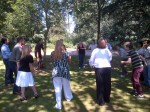Our four steps approach to training:







At The Learning Ladder we work towards long-term relationships with our clients. We firmly believe it is vital that learning can be transferred into the work place. Our training covers the four key areas of business:
- People
- Finance
- Sales and Marketing
- Operations
To support our courses, we offer free telephone and email support to all delegates for a minimum of 1 year.
- Learning styles, status, specialist disciplines, personal requirements and business objectives are always taken into consideration
- We like to engage with delegates as part of the training needs analysis by 1-1 virtual meetings.
- The Learning Ladder promotes active and accelerated learning, so all delivery is interactive and based on real examples.


